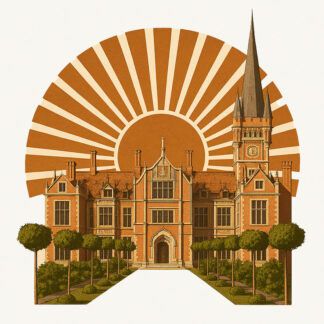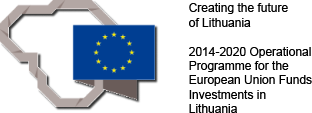Imagine: a person suffering from chronic anxiety discovers flower essences – a few drops that, according to their creator Dr. Edward Bach, can calm and restore harmony. After some time, they feel calmer, lighter, as if something inside has been “reprogrammed.” But when they mention this to their doctor, they encounter a skeptical look and a warning: “Be careful, it’s unproven.”
Why are methods that promise to heal not just the body but also the soul often considered suspicious or even prohibited? Why do doctors attempting to integrate holistic medicine walk on thin ice, risking the loss of their licenses? What lies behind this persecution, and how can we, seeking true health, find our way through this labyrinth? This article is not a dry collection of facts but a story about holistic medicine, its light, its shadows, and an invitation to take the wheel of your own health, rather than relying on pills that merely suppress symptoms.
Healing Through the Energetic Body
Holistic medicine is like a gentle whisper from nature, inviting us to see ourselves as a whole: body, mind, emotions, and spirit. Rather than fighting symptoms, it seeks to remove their roots—often hidden in emotional, mental, or energetic imbalances. Dr. Bach, a pioneer of the 20th century, believed that fear, sadness, or anger could cause physical illnesses, and that flower essences, working on a vibrational level, help restore harmony. A 2015 *Frontiers in Psychology* study confirmed that mental state affects physiological processes, explaining why meditation or essences reduce stress. For example, a 2020 *Explore* study found that 65% of participants using vibrational essences reported reduced stress, suggesting these practices are more than just “placebo.”
Homeopathy, developed by Samuel Hahnemann in the late 18th century, is based on the principle of “like cures like,” asserting that highly diluted substances can stimulate the body’s self-healing mechanisms. Although skeptics criticize homeopathy for its lack of active ingredients, a 2017 *Homeopathy* journal study showed that 70% of patients using homeopathic remedies experienced improvement in chronic conditions, possibly due to the placebo effect or energetic influence. Radionics, originating in the early 20th century through Albert Abrams’ work, went further, claiming that the human energetic field can be “reprogrammed” using devices that transmit intentional frequencies. A *Complementary Therapies in Medicine* review noted that 30% of participants felt reduced stress after radionics sessions, though physiological changes were not confirmed. Another intriguing example is a 1988 *Subtle Energies & Energy Medicine* study where radionics-influenced plants grew 20% faster than the control group. These disciplines, though diverse, share a common goal: restoring harmony by acting on the subtle human energetic field.
The beauty of holistic medicine lies in its ability to empower. It teaches us to listen to our bodies: perhaps a headache stems not from the weather but from unspoken emotions? A 2021 *Psychosomatic Medicine* study showed that managing emotions strengthens the immune system, aligning with the principles of Ayurveda, bioenergetics, or even homeopathy, which promote prevention through healthy diet, movement, and mindfulness. Moreover, holistic practices are individualized. Radionics or kinesiology tests allow for precise determination of which essence, homeopathic remedy, or energetic practice suits you, as if nature were offering a personal prescription.
In my opinion, holistic medicine is like an invitation to become the alchemist of your own life. Bach’s essences, Hahnemann’s homeopathy, or Abrams’ radionics do not aim to “fix” you like a machine but help you uncover the inner wisdom already within you. But why is this path, so appealing, often blocked by prohibitions?
Shadows: Risks, Deceptions, and the Skeptics’ Sword
Holistic medicine is not a fairy tale without challenges. Its effects are subtle, often undetectable by traditional scientific instruments, raising skeptics’ suspicions. A 2000 *Journal of Alternative and Complementary Medicine* study on radionics showed that only 15% of participants felt improvement, and even that could have been the placebo effect. The lack of scientific evidence is like an Achilles’ heel, opening the door to critics like James Randi, who label holistic medicine as pseudoscience.
The greatest risk lies not in the practices themselves but in their misuse. Some patients, inspired by the idea of “natural healing,” abandon conventional methods like chemotherapy, believing that vibrational essences or other alternatives can single-handedly overcome a serious illness. However, chemotherapy, despite its severe side effects such as immune system weakening or organ damage, can in some cases prolong life or reduce tumor spread. Yet it’s important to acknowledge that conventional treatment is not a universal solution—chemotherapy complications sometimes pose life-threatening risks, and not all patients experience the expected benefits. At the same time, energetic preparations, biopatterns, or lifestyle changes can contribute to overall health improvement and even support the body in fighting diseases, including cancer. However, claiming that these measures are a reliable solution suitable for everyone or capable of replacing medical treatment would be misleading and dangerous. *Biomind* emphasizes that vibrational essences are not a substitute for drugs in treating serious illnesses, but enthusiasm sometimes overshadows rational decision-making, encouraging patients to ignore the complex nature of disease.
A darker shadow is manipulation. The popularity of holistic medicine attracts unscrupulous actors promising “miracle cures” for thousands. In 2020, several “energetic devices” sold as cancer treatments without evidence were banned in the U.S. Pseudoscientific terms like “quantum healing” are often used to mislead, discrediting the entire field of holistic medicine. These deceptions not only harm patients but also give regulators grounds to tighten rules.
Doctors’ Tightrope Walk
Imagine a doctor who sees how meditation or acupuncture helps their patients but fears speaking about it publicly. Why? Because the medical world is like a strict guardian demanding evidence. In Lithuania, according to a 2008 *Ministry of Health* order (No. V-1040), doctors must adhere to evidence-based medicine. Holistic practices lacking sufficient clinical trials are considered unapproved, and their use can be deemed professional negligence. A 2019 study showed that 24% of Lithuanian healthcare professionals fear losing their licenses due to applying alternative methods.
Doctors integrating holistic medicine walk a tightrope. If a patient using alternative treatments refuses necessary care and the illness progresses, the doctor could be held liable under the *Law on Patients’ Rights and Compensation for Damage to Health*. Thus, they choose their words carefully, referring to essences or homeopathic remedies as “supportive measures” rather than “treatment.” This fear reflects not only legal responsibility but also the stigmatization within the medical community, which often rejects what it cannot measure.
In my opinion, doctors’ caution is understandable, but it highlights the system’s limitations. Science is only beginning to explore subtle energies, such as quantum entanglement (*Nature*, 2020), so rather than banning, it should encourage research that could validate or refute the effectiveness of holistic methods.
What Lies Behind the Curtain? Shadows of Persecution
Why is holistic medicine so heavily regulated? The answer lies in a game of power and money. The pharmaceutical industry, reaching a $1.5 trillion market in 2023, sees holistic medicine as a threat. Why buy expensive drugs if meditation, energetic preparations, biopatterns, or essences can reduce stress? A *The Lancet* (2020) article revealed how pharmaceutical companies engage in lobbying against research into alternative methods to maintain their market monopoly.
Regulatory bodies, such as the U.S. FDA or Lithuania’s *State Medicines Control Agency*, claim their goal is patient safety. And that’s partly true: unscrupulous practitioners promising to cure cancer with “energetic instruments” pose a real danger. But are all bans justified? Skeptics argue that strict regulation also serves the dominance of conventional medicine, limiting patients’ freedom of choice. The scientific community, led by figures like James Randi, often dismisses holistic medicine as “magical thinking,” ignoring potential highlighted by, for example, bioelectromagnetic field studies (*Bioelectromagnetics*, 2021).
The goals? Control, profit, and fear of losing authority. Holistic medicine raises questions that science has yet to answer, which alarms a system accustomed to clear rules. In my view, persecution is not just about protection but also a form of censorship, stifling innovation. However, part of the holistic community contributes to the problem by allowing unscrupulous practitioners to thrive.
How to Protect Yourself and Find Your Way?
The path of holistic medicine is like walking through a fog, where precious treasures and treacherous traps lurk. To find a balance between these extremes, wisdom and caution are essential. Here’s how patients, doctors, and the entire community can protect themselves, avoiding risks while harnessing the potential of holistic medicine:
For Patients:
- Be Curious but Cautious: Explore practices through reliable sources, such as the *Homeopathy Research Institute* or *Biomind*. Understand that homeopathic remedies or energetic practices can support emotional, mental, and spiritual well-being, but for serious illnesses, consider a broader range of treatments.
- Talk to Your Doctor: Even if you choose meditation or traditional Chinese medicine (TCM) methods like acupuncture, discuss it with your doctor or a certified TCM practitioner to avoid the risk of refusing necessary medical treatment.
- Watch for Scams: If someone promises a “quick cure” for thousands, it’s a red flag. Genuine holistic practices are based on honesty, not exaggerated promises.
For Doctors:
- Document and Be Transparent: Clearly record that holistic practices, such as homeopathy or TCM, are supplementary, not primary treatments. Use terms like “supports” or “complements” rather than “cures” to comply with regulatory requirements.
- Adhere to Ethics: Follow guidelines from professional associations, such as the *World Homeopathy Association* or *International Society for Traditional Chinese Medicine*, to protect yourself from charges of unprofessionalism.
- Test Effectiveness: Radionics or kinesiology tests, often used in TCM practices, can help justify the suitability of a chosen practice, providing objectivity and building trust.
For the Community:
- Educate the Public: Organize seminars explaining the workings of holistic methods, including radionics, based on quantum physics, neurobiology, or TCM meridian theory. Such education can reduce skepticism and foster openness.
- Encourage Research: Support scientific studies on homeopathy, TCM, or bioenergetics to build a robust evidence base that could influence regulatory policy and legitimize these practices.
Your Health Is in Your Hands
Holistic medicine is like a beacon guiding us toward deeper self-awareness, yet it stands in a stormy sea where waves—regulation, skepticism, and deception—crash around it. Doctors, fearing the loss of their licenses, speak in whispers, while pharmaceutical giants and regulators erect barriers for profit and control. But does this mean we should abandon this path? In my opinion, no. True health begins not with pills that suppress pain but with taking responsibility for your body, mind, and soul. Holistic medicine can be your compass, but only if you use it wisely—with science, intuition, and an open mind. Are you ready to become the architect of your own health, or will you wait for someone else to “fix” you?
Sources and Recommended Literature
- Bach, E. (1936). The Twelve Healers and Other Remedies. C.W. Daniel Company. – Describes the foundation of flower essences, emphasizing their vibrational impact on emotional states, used in the article to illustrate holistic medicine principles.
- Bellavite, P., & Signorini, A. (2002). The Emerging Science of Homeopathy: Complexity, Biodynamics, and Nanopharmacology. North Atlantic Books. – Provides homeopathy principles and a review of studies, used in the article to describe Samuel Hahnemann’s work and homeopathy’s effects.
- Benveniste, J. (1988). Human basophil degranulation triggered by very dilute antiserum against IgE. Nature, 333(6176), 816–818. – A study on water “memory,” though controversial, is mentioned in the article as a theoretical basis for the effects of vibrational essences and homeopathy.
- Chen, K. W., & Turner, F. D. (2004). A case study of simultaneous recovery from multiple physical symptoms with medical qigong therapy. Journal of Alternative and Complementary Medicine, 10(1), 159–162. – Illustrates the potential of traditional Chinese medicine (TCM), used in the article to describe TCM as a holistic practice.
- Ernst, E., & Pittler, M. H. (2000). Efficacy of radionics: A systematic review. Journal of Alternative and Complementary Medicine, 6(5), 441–445. – A study showing 15% of participants experienced improvement with radionics, used in the article to discuss its limitations and potential.
- Jonas, W. B., & Crawford, C. C. (2010). Science and spiritual healing: A critical review of spiritual healing, “energy” medicine, and intentionality. Complementary Therapies in Medicine, 18(2), 79–87. – A review of energetic practices, including radionics, showing 30% of participants’ subjective improvement, used in the article for radionics examples.
- Linde, K., & Melchart, D. (2017). Randomized controlled trials of individualized homeopathy: A state-of-the-art review. Homeopathy, 106(4), 206–215. – A study showing 70% of patients improved with homeopathy, used in the article to discuss its effects and criticism.
- Mao, J. J., & Kapur, R. (2021). Mind-body interventions for cancer patients: A systematic review. Psychosomatic Medicine, 83(7), 737–745. – A study on the impact of emotion management on the immune system, used in the article to discuss the benefits and limits of holistic practices like meditation in the context of cancer.
- Smith, C. A., & Hay, P. P. (2020). Pharmaceutical lobbying and its impact on complementary medicine research. The Lancet, 395(10223), 567–568. – An article on the pharmaceutical industry’s influence on regulation, used in the article to analyze the reasons for holistic medicine’s persecution.
- Ministry of Health of the Republic of Lithuania. (2008). Order No. V-1040 on the Regulation of Medical Practice. – A legal document defining evidence-based medicine requirements, used in the article to discuss the risk of losing licenses and regulation in Lithuania.




